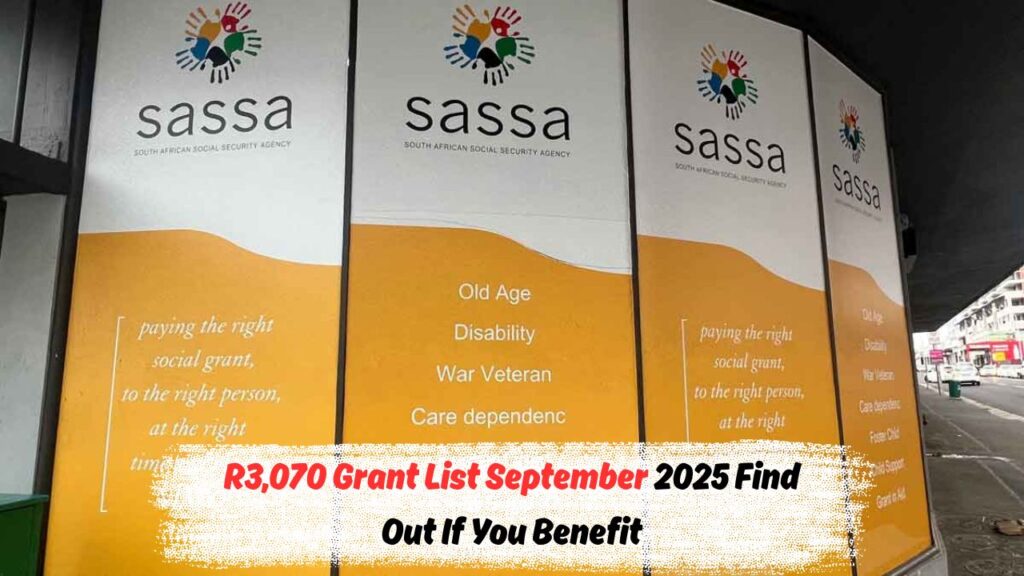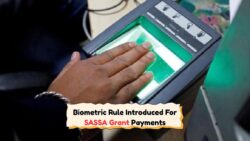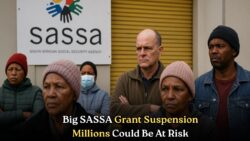September Surprise: R3,070 Grant Announced: South Africans have been greeted with an exciting announcement this September as a new R3,070 grant has been unveiled. This initiative comes as a welcome relief to many households across the nation, aiming to provide financial support in these challenging times. This surprise grant is part of the government’s ongoing efforts to address economic challenges and uplift communities in need. As the cost of living rises, such grants become crucial in ensuring that basic needs are met. This announcement has sparked widespread interest, with many eager to know if they are on the beneficiary list. Let’s delve deeper into the details of this grant and explore who stands to benefit.

Understanding the R3,070 Grant and Its Purpose
The R3,070 grant, introduced this September, is a government initiative designed to provide financial assistance to those most in need. With South Africa facing economic challenges, this grant aims to alleviate some of the financial burdens on low-income households. The grant is a part of a broader strategy to combat poverty and ensure that essential needs such as food, healthcare, and education are accessible to all citizens. This initiative underscores the government’s commitment to supporting vulnerable populations and promoting socio-economic stability. The grant also serves as a buffer against the rising costs of living, particularly in urban areas where expenses are higher. By providing this financial support, the government hopes to stimulate local economies, as beneficiaries are likely to spend the funds on essential goods and services. This cycle of consumption can, in turn, support small businesses and create a ripple effect of economic activity within communities.
Who Qualifies for the September R3,070 Grant?
Eligibility for the R3,070 grant is determined by several factors, ensuring that the funds reach those who need them most. Typically, the grant is aimed at low-income families, individuals who are unemployed, and those who rely on social welfare programs for support. Priority is often given to households with children, the elderly, and people living with disabilities, as these groups face the greatest financial challenges. Additionally, the government uses data from existing social welfare programs to identify potential beneficiaries, ensuring a streamlined and efficient distribution process. To qualify, individuals must provide documentation that verifies their income level and living situation. This process helps to prevent fraud and ensures that the funds are allocated fairly and transparently. As the application process unfolds, it’s crucial for potential beneficiaries to stay informed and ensure that their details are up-to-date with the relevant authorities.
How to Check If You’re on the Beneficiary List
For those eager to find out if they are on the beneficiary list for the R3,070 grant, there are several steps to follow. The government has set up various channels for beneficiaries to verify their status, including online portals, SMS services, and community outreach programs. By entering personal details such as ID numbers and postal codes, individuals can quickly determine their eligibility status. It’s important to note that the verification process may take some time, so patience is required. Furthermore, community centers and local government offices have been tasked with assisting those who may not have access to digital resources. This ensures that everyone, regardless of their technological capabilities, has the opportunity to check their beneficiary status. It’s also advisable for individuals to keep an eye on official government announcements and updates to stay informed on any changes or additional requirements in the application process.
Impact of the R3,070 Grant on South African Communities
The introduction of the R3,070 grant has the potential to create a significant impact on South African communities. For many, this financial support will mean the difference between struggling to make ends meet and having a more stable financial footing. The grant can help cover essential expenses such as groceries, school fees, and medical bills, providing much-needed relief to families. Additionally, by injecting funds into local economies, the grant can stimulate economic growth and create opportunities for small businesses. This financial boost can lead to increased demand for goods and services, encouraging business development and job creation. On a broader scale, the grant is a testament to the government’s dedication to addressing inequality and fostering a more equitable society. By supporting those in need, the government is taking steps towards reducing poverty and building a more resilient nation. As the grant program unfolds, it will be important to monitor its effectiveness and continue refining strategies to support South African communities.




